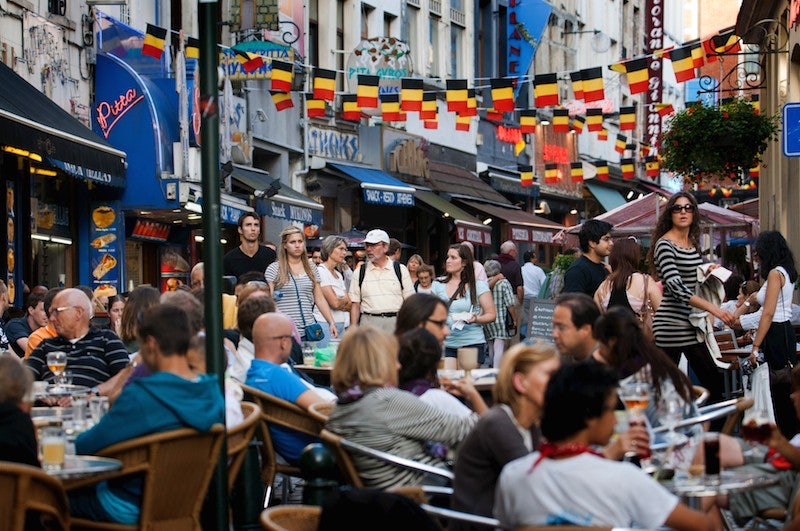The hospitality sector in Belgium, which was heavily hit by the pandemic and restrictions put in place to curb infections, is taking big steps on the road to recovery, as the number of working days in the sector is rising again.
In the last two years, the percentage of days worked across all sectors dropped as a result of a decrease in both temporary unemployment implemented due to the pandemic, as well as a decrease in short-term sick leave. The percentage of days worked is now almost at the same level as the percentage of days worked in 2019.
"The figures are evolving positively. There is an almost normal working pattern again, with less sickness and holidays in the school holidays, but there are still fewer working days than in 2019, the last year before Covid-19," Geert Vermeir, legal consultant at SD Worx, the HR service which carried out the service, said.
"We are not yet at the same level because sick leave is still much higher than in previous years." This absenteeism remains higher than in 2019 for the same period (3.46% in April this year compared to 2.64%).
Campsites and bars show strong growth
In Belgium, the average percentage of days worked is 75.89%%, meaning fewer than 25% of days are lost to illness, holidays or unemployment.
Some segments of the hospitality industry, such as campsites (86% of working days) and restaurants and bars (77.71% and 79.08% respectively) perform even better.
"This is a good omen for the summer, a very important period for the hotel and catering industry," a statement from SD Worx read. Last year, the summer was still bad for the tourist sector, especially in Brussels.
Related News
A similar positive recovery was recorded in the performing arts sector, which was also one of the most affected by the government's measures to curb infections. "We can explain this by the virtual disappearance of temporary unemployment in this sector," Vermeir explained.
However, the sector's difficulty to hire new employees persists. Again, especially in Brussels, the demand for staff is high, which is why the sector is calling on students to apply for jobs in the sector.
"Finding staff remains a problem that slows down the recovery of companies in the hospitality sector. This is mainly due to the very high medium-term sickness absence rate (3.87%) in the sector," Steven Rosseel, SD Worx's hotel and catering expert said. Many employees also stopped working in the hospitality industry during the various periods of lockdown and are not returning.
Vermeir added that, for the time being, there are not many consequences of the war in Ukraine for the employment figures in Belgium. "However, companies should remain cautious, as the economic situation remains unstable worldwide."

